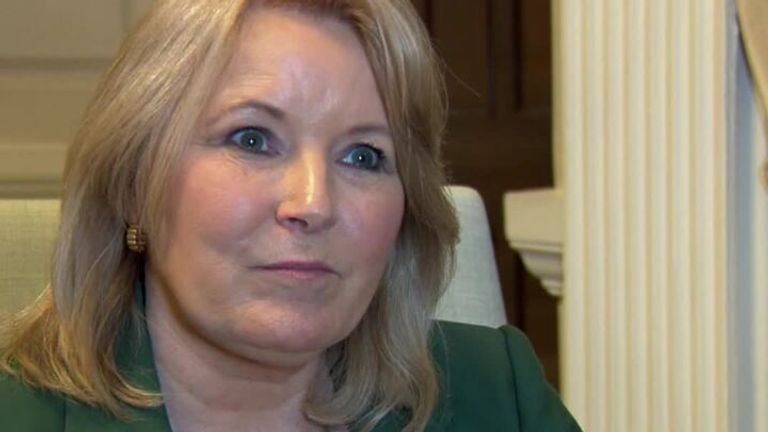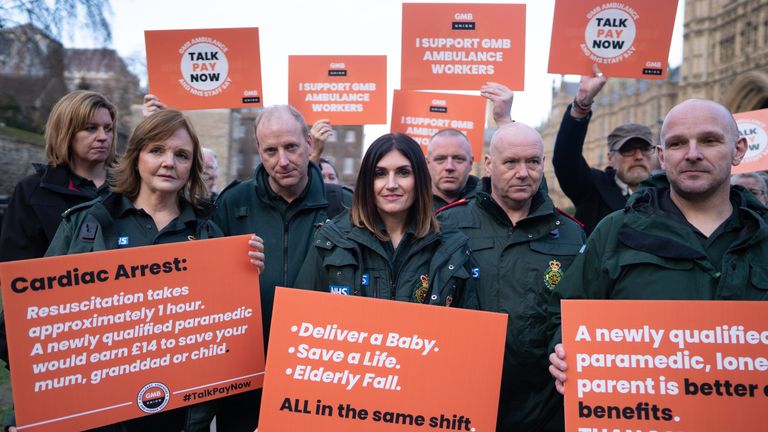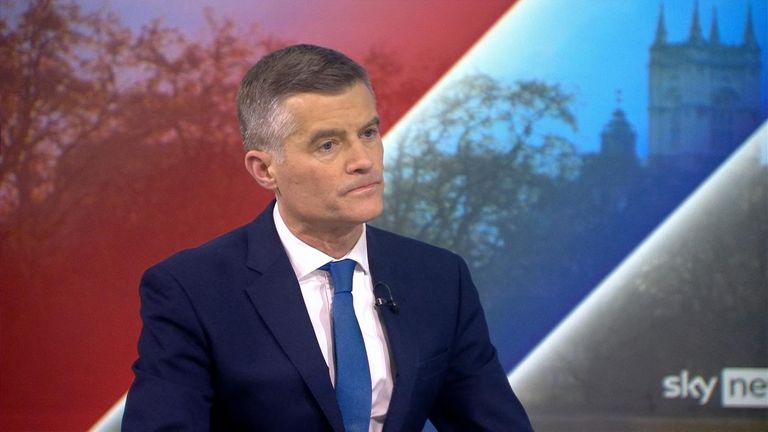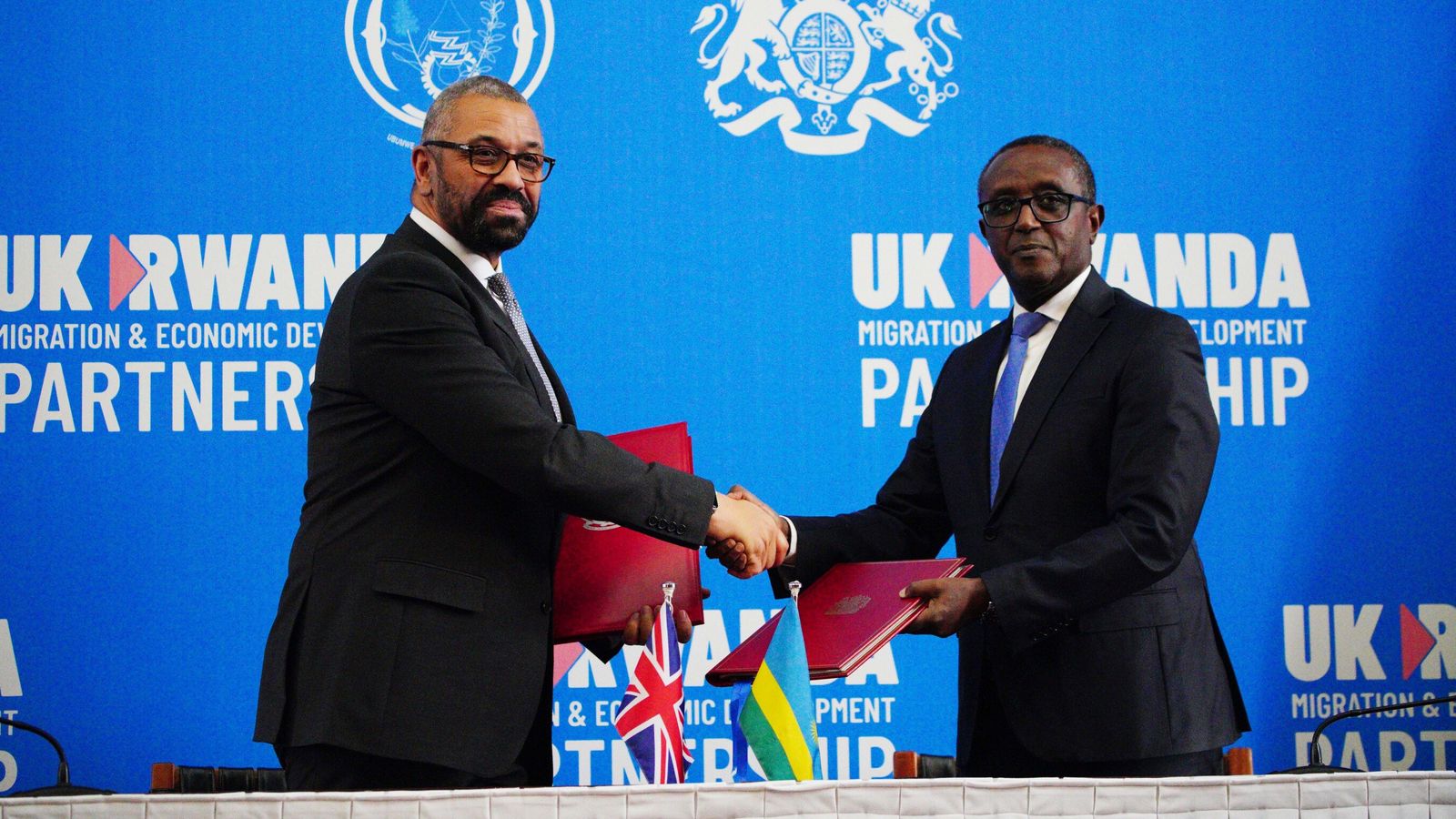Nurses have paused strike action as they begin pay talks with the government – despite a recommendation that most public sector staff should get a pay rise of just 3.5%.
The Royal College of Nursing (RCN) is getting around the table with the health secretary today to start “intensive talks” on pay and conditions.
It is the first breakthrough in a long-running dispute that saw their first-ever strike in December, plus further walkouts in January and February.
They were offered the talks yesterday afternoon and said they would pause plans for a 48-hour strike in England from 1 to 3 March, which was to involve emergency, intensive care and cancer staff for the first time.
RCN head Pat Cullen said she is “confident that we will come out with a fair pay settlement for our nursing staff”.
The union initially wanted an above-inflation pay rise of 19.2% following years of real-term pay cuts but said it would meet the government “halfway” at 10%.
Unison, which also represents nurses, criticised the government for only offering meetings with the RCN as it called for pay talks with all health unions.
British Medical Association (BMA) members who are junior doctors – all doctors below consultant level – also announced on Monday they had voted overwhelmingly in favour of striking for 72 hours, forcing most pre-planned care to be cancelled on dates yet to be announced.
The Department for Education also offered talks with teaching unions on Monday but they have not revealed if those have been accepted yet.
3.5% pay rise across various sectors
Moments after the government and the RCN agreed to talks, the government published its recommendation for a 3.5% pay rise for NHS staff, police officers, teachers, judges and prison staff for the next financial year.
The government said a 3.5% pay rise would be “affordable” – but unions are calling for much higher increases for this year before negotiations even begin for 2023/24.
In the Department for Health and Social Care’s evidence to the pay review body, which recommends how much public sector staff should be paid, it said anything above 3.5% “would require trade offs for public service deliver or further government borrowing”.
Rachel Harrison, national secretary for the GMB union that represents ambulance workers and other NHS staff, called the offer “a disgrace” and said it “will do nothing to end GMB’s NHS and ambulance strikes”.
Unison’s head of health, Sara Gorton, said the government “couldn’t have done better than this” if it was actively trying to worsen the NHS crisis and warned it “could prove the final straw” for staff questioning whether to leave the NHS.
Tuesday also saw Welsh Ambulance workers who are members of Unite setting out two further days of strike action on 6 and 10 March – on top of the current three-day strike that ends today.
As health is a devolved issue, their fight is with the Welsh Labour government.
Read more:
NHS crisis: Why are so many staff leaving the health service?
Who is striking and when?
Police
The 3.5% pay recommendation from the Home Office for police pointed to forces having “previously indicated that a pay award above 2% for 2023/24 may be affordable”.
The document said the department was carrying on discussions with the National Police Chiefs’ Council and Association of Police and Crime Commissioners.
But it added: “Considering the additional funding available from the police funding settlement for 2023/24, and forces seeking to maximise efficiencies, our current assessment is that there is scope for forces to budget up to a 3.5% pay award within the existing settlement.”
Teachers
The Department for Education’s recommendation for a 3.5% pay rise for teachers also included 3% awards for experienced teachers and raising starting salaries to £30,000.
It said that “will be manageable within schools’ budgets next year, on average, following the additional funding provided at autumn statement”.
But ministers also said there could be more available for teachers if energy costs came down, allowing them “more headroom”.
The National Education Union (NEU) joint secretary, Kevin Courtney, said he was “pleased” the government is offering formal talks and he hopes it means they are willing to talk about pay after previous talks this year have failed to result in an offer.
But he said their offer of talks “still contains no suggestion that they are willing to talk about pay rises this year”.
There is nothing in the government’s talks offer suggesting the NEU should call off next week’s teacher strikes, the union said.
But, Mr Courtney said there is still time for an offer to be made ahead of its national executive meeting this Saturday.
Judges and prison workers
The Ministry of Justice said all judges should get a 3.5% pay increase next year, which it said would cost £23m.
On its submission for those working in the prison service, it said it would not provide a base figure and instead submitted proposals for wages depending on pay band.









